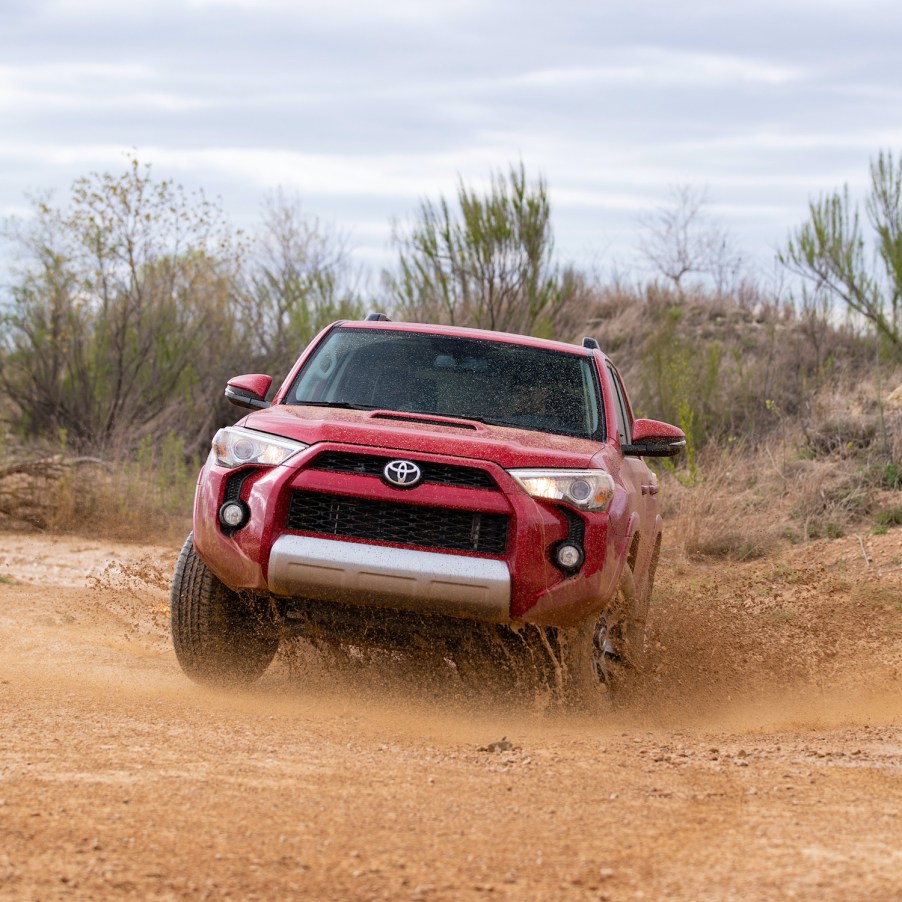
Is the 2021 Toyota 4Runner Still Worth Buying?
As far as off-roading SUVs go, the Toyota 4Runner has always been one of the very best. However, as the fifth-generation 4Runner heads toward its 12th year on sale, it may be time for an upgrade. While Toyota has tried its best to freshen the 4Runner up throughout the years, there’s no shaking the fact that it’s over a decade old. Today we’ll be looking at the current state of this three-row SUV and whether or not it’s still a good buy.
Here’s what the 2021 Toyota 4Runner gets right

Sales for the Toyota 4Runner have steadily increased since the introduction of the fifth-generation, says CarSalesBase. On the surface, it’s effortless to see why. Underpinning the 4Runner is a body on frame design. This is done so to give the 4Runner excellent off-roading capabilities. According to Consumer Reports, the 4Runner’s engine, transmission, and suspension have also excelled in terms of reliability. The result is that the 4Runner is not only highly capable but very robust as well.
The off-roading Toyota is also perfectly equipped to handle families. With three rows of seating as standard, the 4Runner is incredibly versatile. To keep things fresh in the interior, Toyota axed the original interior of the fifth-gen 4Runner and added new tech features. One of the main additions is an eight-inch touchscreen that offers Apple CarPlay and Android Auto connectivity.
Most importantly, for families, the 2021 4Runner gets a suite of standard safety features. Included as standard is Pre-Collision System with Pedestrian Detection, Lane Departure Alert, Automatic High Beams, and Dynamic Radar Cruise Control. The result is that the newest version of the off-roader is significantly safer than earlier model years.
Off-roading capabilities are a double-edged sword

Although the Toyota 4Runner has tried to keep up with modern SUVs, its age is severely holding it back. Add on to that the upcoming arrival of the Ford Bronco, and it could truly be in some trouble. For starters, the 4.0-liter V6 that lives under the hood remains largely unchanged since 2009. As a result, the 4Runner is only capable of 16 mpg average in the city and 19 mpg average on the highway. Additionally, the 4Runner’s 270-hp output isn’t even enough to compete with the cheapest brand-new Jeep Wrangler. As a result, the only engine option you have is a thirsty and weak one.
While the Toyota 4Runner’s off-roading capabilities are some of its greatest assets, they also contribute to a massive flaw. According to Car and Driver, the 4Runner feels sloppy and uncomfortable on the road, resulting in a less than an ideal driving experience for daily commuting. This comes as a result of a high center of gravity and off-road-focused suspension. To add insult to injury, the IIHS gave the off-roading Toyota abysmal crash safety ratings. The worst-rated area was the SUVs structure, which received a “poor” rating. The result is that while Toyota has added new safety tech, the physical crash safety hasn’t improved significantly.
Should you buy one?

Now that we’ve looked at the Toyota 4Runner’s pros and cons let’s determine if it’s right for you. If your interest mostly revolves around off-roading and going on adventures, then the 4Runner is a great buy. There are plenty of off-roading features to keep enthusiasts happy.
On the other hand, if the 4Runner will be your ride to the office, you’ll want to look elsewhere. When you consider the Toyota’s $36,340 starting price, there are more comfortable and feature-packed SUVs for the money. In the end, the Toyota 4Runner is only worth buying if your lifestyle can get the most out of its strengths.


